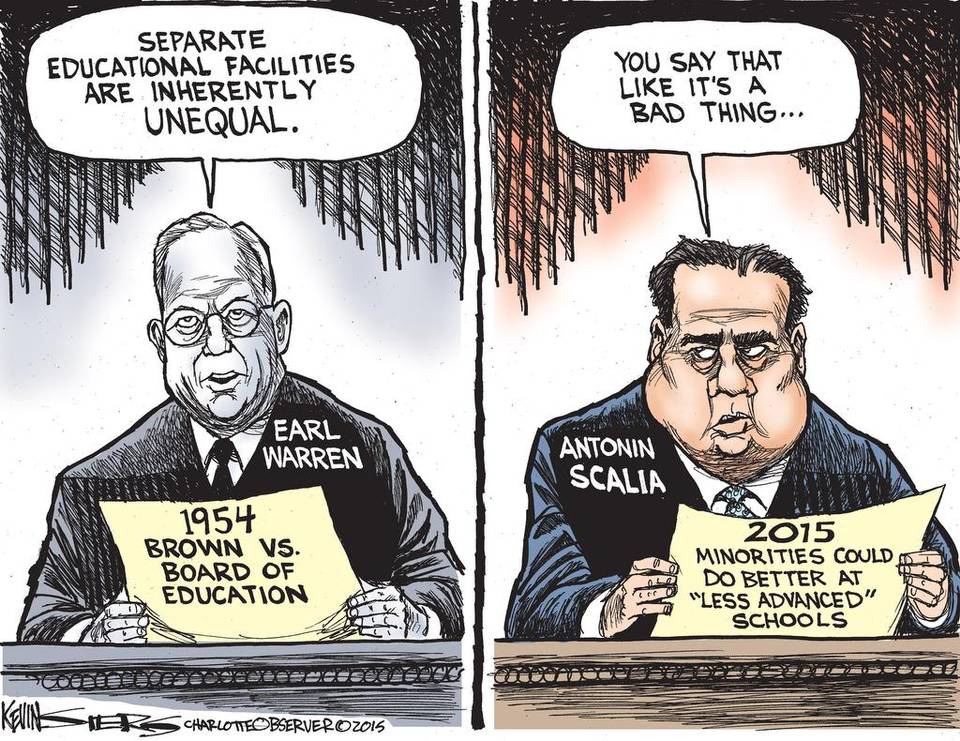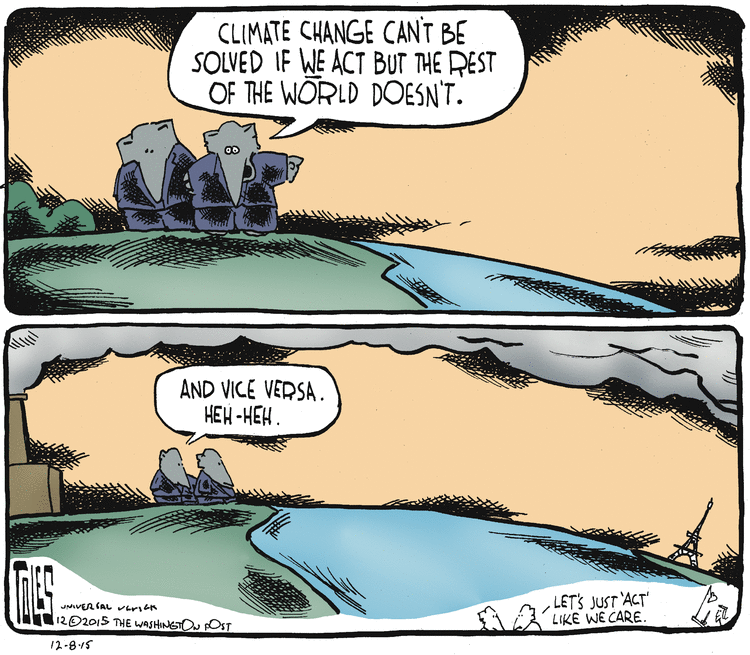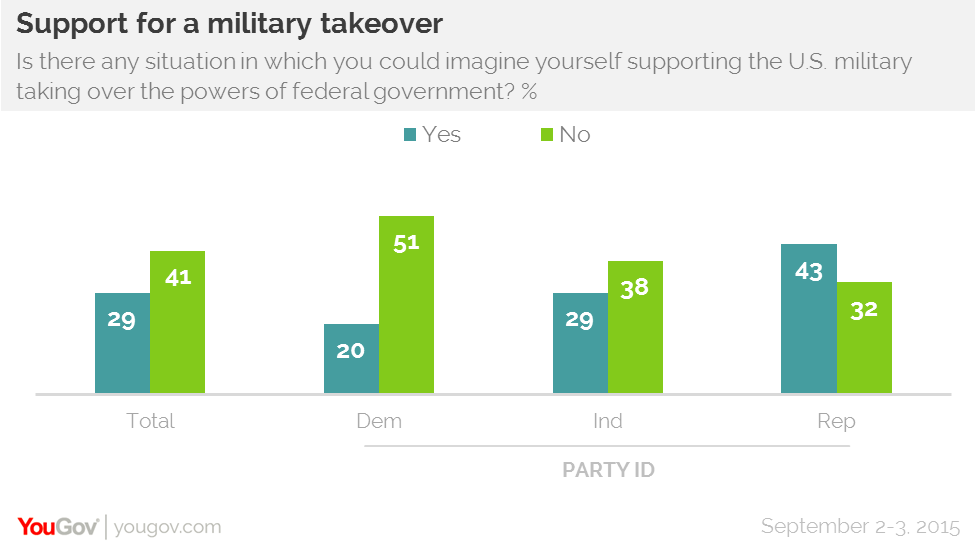We have two tribes in America, largely represented by our two political parties. The parties debate the correct course for the country, without any chance of reaching compromise. One of the parties has begun acting like insurrectionists.
Over the past 40 years, the Republican Party has transformed into a party that flouts the law when it is in the majority, and threatens disorder when in the minority:
• No Democrat has called for secession, as Rick Perry did
• No Democrat defied the Supreme Court by sending in the National Guard and provoking a confrontation with police, as Jeb Bush did during Schiavo
• No Democrat is so anti-science that they believe that if women are “legitimately raped,” they will be protected from pregnancy, as Todd Akin did
• No Democrat has said, what Mike Huckabee has said: The Supreme Court is only that…it is not the Supreme Being. It cannot overrule God…when it comes to life, and when it comes to the sanctity of marriage, the court cannot change what God has created
• No Democrat has suggested that states disregard EPA rules on coal plant emissions while various court challenges occur, as Senate Majority Leader Mitch McConnell did
Politicians keep their jobs because they win elections, and a politician who openly admits that he only believes in democracy if it achieves his desired ends, is at minimum, a radical, or more likely, is an insurrectionist.
There is a precedent for the actions of today’s Republican Party. It is the antebellum Southern Democrats of John C. Calhoun, who threatened to nullify federal legislation, and who later led the fight to secede from the union over slavery.
The homeland of today’s right-wing insurgency is the very same place where the last insurgency originated: The Old Confederacy. History offers some geographical perspective: The South had an almost unbroken control of the Federal Government from 1789 until secession. Our presidents were either Southerners, or when they were Northerners like Pierce and Buchanan, they were puppets of Southern senators and cabinet members.
For 70 years, the Supreme Court had a majority of Southern justices. With the aid of Northern allies and the three-fifths rule, the South continuously controlled one or both houses of Congress. The 15 Slave States, with a white population of not quite eight million, had 30 Senators, 90 Representatives, and 120 electoral votes, while the state of New York, with a population of four million had two senators, 33 representatives, and 35 electoral votes.
Lincoln’s election in 1860 left the South in control of both houses of Congress, and until 1863, Lincoln and the Republicans would have been powerless to pass legislation hostile to the South. Through its control of the Senate, the South could have blocked the confirmation of any Lincoln appointee whom it considered unfriendly. In spite of this, and notwithstanding Lincoln’s repeated assurances that he would not, directly or indirectly, interfere with slavery where it already existed, the South seceded.
Today, the two parties are still the two tribes that were created out of secession, and the same political dynamic prevails today. The civil war map looks starkly similar to the political bases of both parties today, with the addition of the new Randians in the Upper Midwest.
This tribe now includes Republicans, the Tea Party and right-wing conservatives. They now control 36 state legislatures that are trying to eliminate abortions, remove environmental protections, enhance gun rights, and privatize education, all of which need a weak federal government in order to succeed. Time to call it what it is: A domestic insurgency by America’s right wing tribe.
After the Civil War, we passed the 13th, 14th, and 15th Amendments, ending slavery, formalizing birthright citizenship, creating black male suffrage, and guaranteeing equal protection under the law. Later, after the Great Depression, we enacted laws to protect the people from financial abuses by businesses and corporations. With Civil Rights legislation, the federal government protected citizens from abuses at the hand of businesses as well as local governments.
Much of these will be unwound if the insurgency succeeds.
What good are policy proposals in the face of an insurgency? We no longer have fellow citizens, we have enemies. We do not have common views, we have religious, racial, class, and political factions.
When we see each other as enemies, we are the Middle East, we can no longer work together for the common good.
We should deal with our tribal issues at home instead of trying to fix the tribal issues in the Middle East.


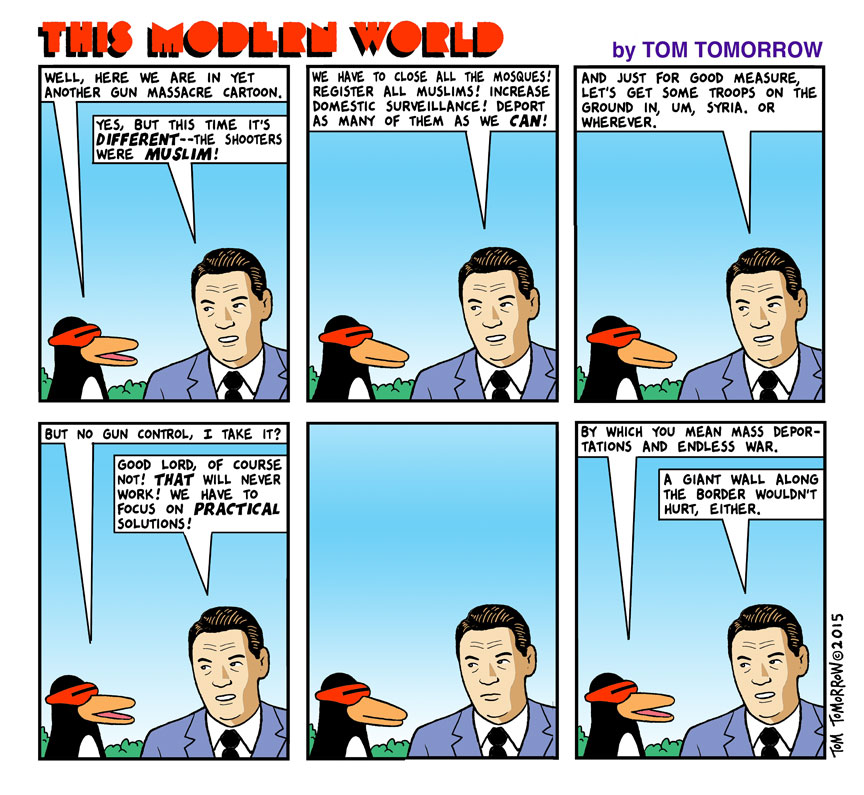
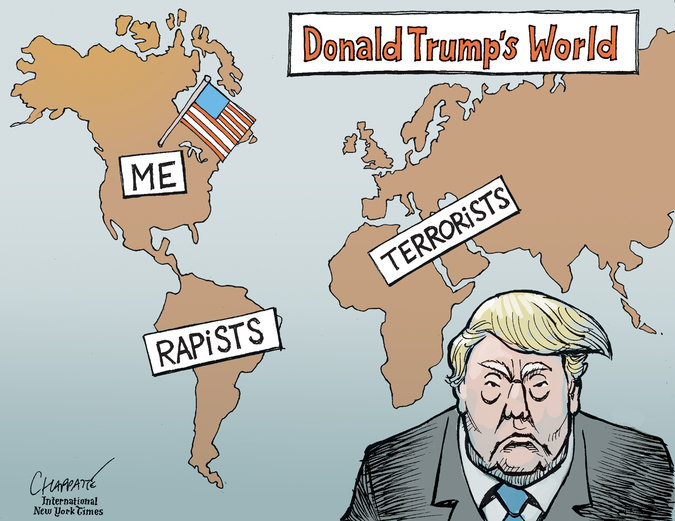
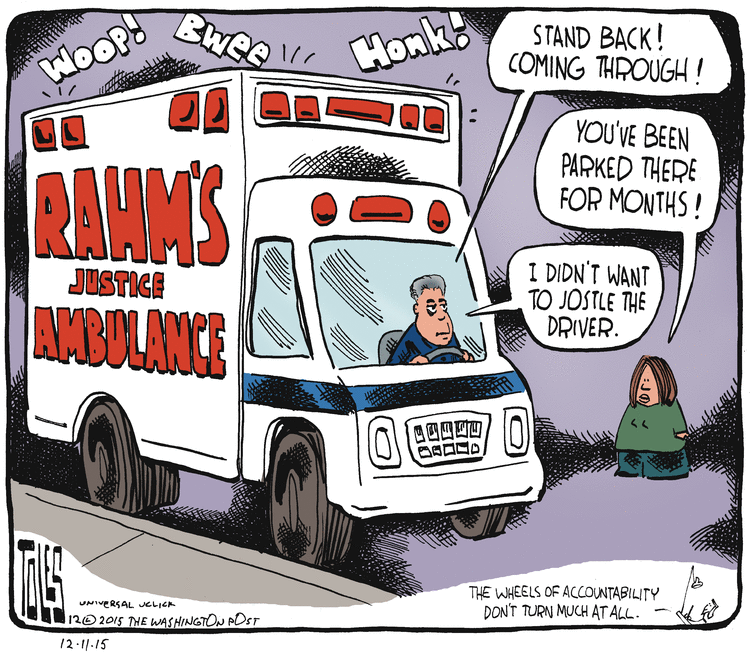 As mayor, he sat on that video for over a year. He had to know, because the $5 million payment to the victim’s family didn’t come from petty cash at the Chicago PD. He was the chief architect of the cover-up. And he needs to go.
As mayor, he sat on that video for over a year. He had to know, because the $5 million payment to the victim’s family didn’t come from petty cash at the Chicago PD. He was the chief architect of the cover-up. And he needs to go.